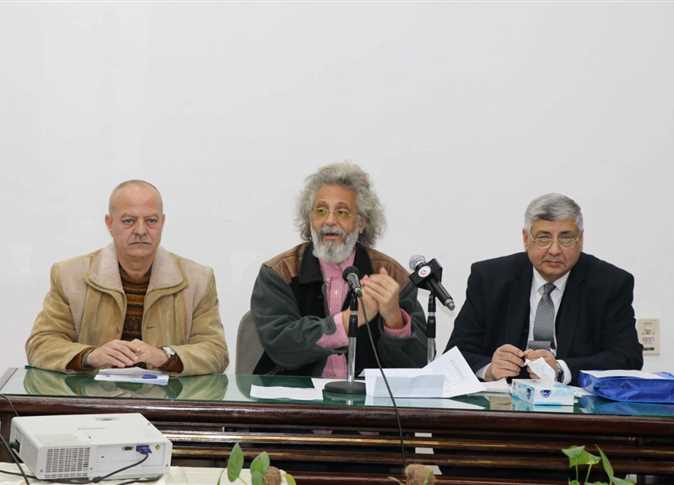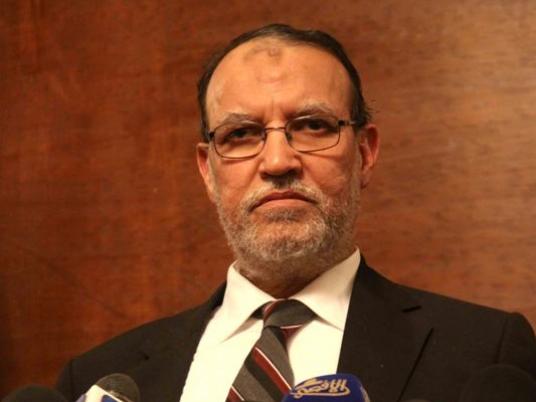Politicians voiced mixed reactions on Tuesday to the army-backed Political Party Law, dismissing the provision requiring new parties to garner 5,000 members at application time as crippling.
“The law answers the demands of the majority of the Egyptian people, but requiring parties to have 5,000 members is an exaggerated condition,” said Essam al-Erian, a prominent leader of the Muslim Brotherhood.
On Monday, the Supreme Council of the Armed Forces (SCAF) unveiled the much-anticipated replacement for the existing the law on party formation. The new legislation stipulated that nascent parties should notify a legal committee once they have at least 5,000 members from at least ten out Egypt’s 29 provinces.
This legal committee is required to decide on the party’s eligibility within 30 days. In case the committee has any objection to the application, it should refer the matter to the Supreme Administrative Court within eight days. If party founders receive no reply within a month, the party automatically acquires official status.
The amendments also lifted the notorious stipulation that a new party platform should be distinguishable from that of existing parties. This particular clause was used pervasively by the old regime to turn down dozens of party applications.
Under the old law, would-be parties rarely made it past the notorious Political Parties Affairs Committee, which was dominated by ousted President Hosni Mubarak’s protégés. This committee included Mubarak-appointed executives rather than judges. It consisted of the head of the Shura Council, interior, justice, and parliamentary affairs ministers, in addition to three judges.
In 2005, Mubarak’s National Democratic Party introduced some cosmetic amendments to the law, adding three public figures to the commission and reducing the number of ministers from three to two. The amendments also raised the number of founding members required from 50 to 1,000. None of these changes could loosen the grip of Mubarak’s regime on party formation as the committee maintained the right to decide on new parties within a period of three months.
“We do not have fundamental objections against the law, other than the number of members required,” said Shady Harb, a representative of the 25 January Revolution Youth Coalition, a loose entity formed in February to group different youth-based entities that spearheaded the uprising.
“With this law and with parliamentary elections scheduled for September, they put us in a big trouble,” said Harb. “Time is too short to declare new parties that can run for parliament.”
“I could have accepted this number if I had had one year before parliamentary elections,” he added.
In recent weeks, different ideological groups have begun to organize, hoping the new law would allow them to found official political parties. Samer Soliman, a political science professor with the American University in Cairo, along with hundreds of professionals and university professors, is currently founding a party named The Egyptian Democratic Social Party. Although he believes his would-be party will be able to meet most of the requirements, he dismissed the law as “terribly bad”.
“The main problem lies in the way the bill was drafted,” said Soliman. “It was written by a committee that did not represent different factions of Egyptians, and in the meantime there was no transparency. This committee should have held all its talks in public.”
By not listening to different political forces, the army-appointed committee has been acting as if it was the Egyptian people’s “custodian”, according to Soliman.
In mid-February 2011, the army appointed an eight-member commission to introduce a package of constitutional and legal amendments that pertain to presidential and parliamentary elections as well as the exercise of political rights and party formation. The appointment of former Justice Tareq al-Beshry, known for his Islamist leanings, as the head of the commission, and Muslim Brotherhood lawyer Sobhi saleh as a member, caused something of a stir among secularists.
Yet, earlier this month, a sweeping majority voted in favor of the eight constitutional amendments hammered out by the commission amid a resilient polarization in political salons on what ballot to cast.
The same commission amended the Political Party Law, maintaining a clause that prohibited the formation of parties on the basis of religion. The banning of religious parties is of particular interest to secularists and Coptic Christians who fear the rising might of Islamists, including the Muslim Brotherhood, Salafi groups and other radical organizations such as Jama’a al-Islamiya and al-Jihad. All of these organizations have announced their willingness to form political parties.
The Muslim Brotherhood, which stands as the most organized and politicized of all these groups, does not seem wary of the clause prohibiting religious parties. Last month, the Muslim Brotherhood announced that it would form a “civil” political party with an Islamic frame of reference, named Freedom and Justice, as soon as the military lifts the Mubarak-imposed restrictions on party formation.
“Banning parties formed on a religious basis is a good thing; parties are civil by nature,” said El-Erian. “An Islamic frame of reference does not imply an Islamic ideology that excludes the other.”
The same clause banned parties formed on the basis of race, class, sex and language.
“I also do not understand why the law prohibits parties that are formed on a class basis, what does that mean?” wondered Soliman in anger, adding that this clause might be used to ban labor parties.
“In any democracy, you have workers’ parties,” he said.
Since 2006, Egypt swarmed with resilient labor unrest. Workers staged thousands of protests and strikes demanding better wages and eventually rose as a social force to be reckoned with. After Mubarak’s ouster, left-wing activists began to found the Democratic Workers’ Party to serve the interests of Egypt’s working class.
For Soliman, the new law bears another “discrimination against poor classes” by stipulating that party founders should publish their names in two widely-circulated dailies within eight days of filing their application.
“Publishing 5,000 names in two dailies can be extremely expensive. You might need two millions pounds to do that,” said Soliman, whose party espouses social democracy and brings together several public figures, including political scientist Amr Hamzawy, gynecologist Mohamed Abouel Ghar and economist Hazem el-Beblawy.
“This condition bears aspects of discrimination that will act in favor of parties backed by businessmen. Only businessmen can afford such ads,” said Soliman.
Soliman was also outraged by the new clause that stipulates that a party platform should not contradict the “fundamental principles of the constitution”.
“This clause is very dangerous and will be a ticking bomb,” said Soliman.
“The constitution is not a sacred text. Forcing parties to approve of all constitutional principles is nonsensical and infringes upon my freedom. People have the right to struggle peacefully and through democratic channels to change the constitution.”




